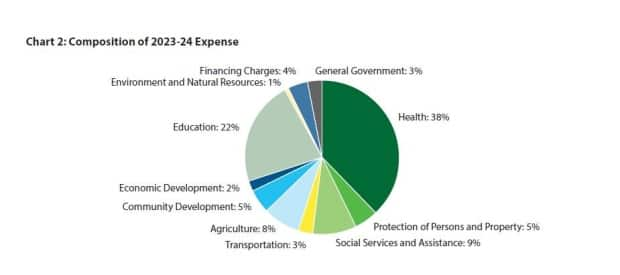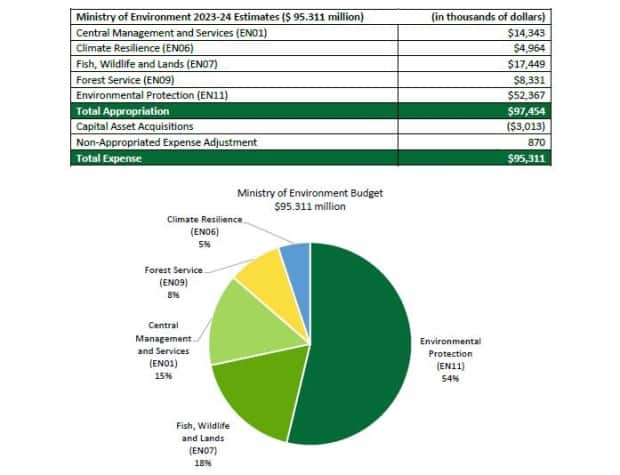Farmer frustrated about missing climate action in Sask. budget

The words "climate change" show up once in Saskatchewan's latest budget document, but only in the context of how budget pressure will be driven by — among other things — federal climate change policy.
The Saskatchewan government is projecting a $1-billion surplus for 2023-24, opting to use that money to pay down debt and touting an increase to health care and education spending, but a Saskatoon climate activist and farmer says he is frustrated with the lack of money earmarked to fight climate change.
"Really this budget has nothing to offer by way of trying to address our climate crisis," said Glenn Wright, who grows a variety of crops on his farm near Delisle, west of Saskatoon.
"It's worse than that because it perpetuates this business-as-usual."
He said he looked for words such as greenhouse gas or emission, but couldn't find either of them.
Wright ran in provincial elections for the NDP in 2011 and 2016, and the Green Party in 2020. Wright said he is not a member of either party today. He also ran federally for the NDP in 2015 and as an independent candidate in 2019.
When asked on March 23, Saskatchewan's Finance Minister Donna Harpauer said there was nothing specific addressing climate change in the latest budget.
"It's sort of a global thing," Harpauer told Saskatoon Morning host Leisha Grebinski on March 23.
"I'm not sure what single initiative that you would have that you could say, this is climate change. In every area, I think, that when you reduce the impact is how you affect climate change, and largely it is driven by industry to be sure."
While Harpauer said the province is "encouraged" by the industries in Saskatchewan being creative on different initiatives addressing climate change, Wright said he is tired of finger pointing and hearing climate change being someone else's problem.
"This is a collective problem and we all have a role to play here," he said.
"I hear that all the time that, well, China does this or, you know, India is doing that. But we in Saskatchewan, we need to take responsibility for what we're doing right now."
LISTEN | Saskatchewan's finance minister is projecting a surplus this year:
Sask. ranks highest in emissions per capita
Saskatchewan has the highest greenhouse gas emissions per capita in the country, and is 216 per cent above the national average, according to the Government of Canada's provincial and territorial energy profiles.
The biggest emitting sectors in the province are oil and gas production followed by agriculture and electricity generation.
Southern Saskatchewan is considered to have some of the highest solar photovoltaic and wind energy potential in Canada, according to the federal government.
"It's just shameful that we're not developing that with more enthusiasm," said Wright.
"It's our unsustainable fossil fuel use that really we need to address. There is no path to sustainability with continued fossil fuel expansion."
Ministry of Environment's 2023-24 budget
The latest provincial budget includes a $725,000 increase for Saskatchewan's Ministry of Environment intended to support the mining industry by engaging in an evaluation to improve the process for exploration permits and to reduce wait times, according to the document.
Overall expenses in the recent provincial budget are classified into 11 themes. Total expense is budgeted at $18.7 billion in 2023-24, with the theme of environment and natural resources making up one per cent.

The Ministry of Environment's 2023-24 budget increases by 2.9 per cent up to $95.3 million, according to a news release from the ministry. The ministry's budget includes $4.964 million for the province's Climate Resilience strategy, which launched in 2017.
The boost is supposed to "help support investments in the ministry's mandate of environmental protection, sustainable resource management and continue to make the province more resilient to the impacts of climate change."
Projects listed by the Ministry of Environment for 2023-24 include cleaning up abandoned mines, supporting sustainable mineral exploration, reducing and managing solid waste, working on Saskatchewan's Output-Based Performance Standards Program to replace the federally imposed carbon tax on industrial emitters and the introduction of a new wolf hunting licence, according to the ministry.
"These initiatives and others that the Ministry of Environment will implement in 2023-24 impact a wide range of environmental priorities," said Environment Minister Dana Skoropad in the news release.
"They balance the need to conserve and protect our resources, while supporting investment in our provincial economy."
When asked for comment about the lack of specific climate change action in the new provincial budget, the ministry referred to its own 2023-24 budget including the money for the Climate Resilience Branch and said Saskatchewan is one of the most sustainable places to live in the world.
"Saskatchewan is committed to four pillars of sustainability: sustainable resources, environmental stewardship, community support and clean energy," the ministry wrote in an email on Tuesday.
"Prairie Resilience takes a system-wide approach and includes more than 40 commitments designed to make Saskatchewan more resilient to the effects of a changing climate.

With no specific climate action listed in the new provincial budget and yet another report from the UN's international science panel on climate change, Wright said it is difficult for him to carry on after being a climate activist for about 16 years.
"You have to reduce our impacts, and that's about reducing waste and being more efficient," said Wright.
"Then the last point is reconciling our relationships with each other and with nature…. That's what we need to do, work together, because we're all in this together."
LISTEN | The province just unveiled this year's budget. So what does it all mean for Saskatoon?

